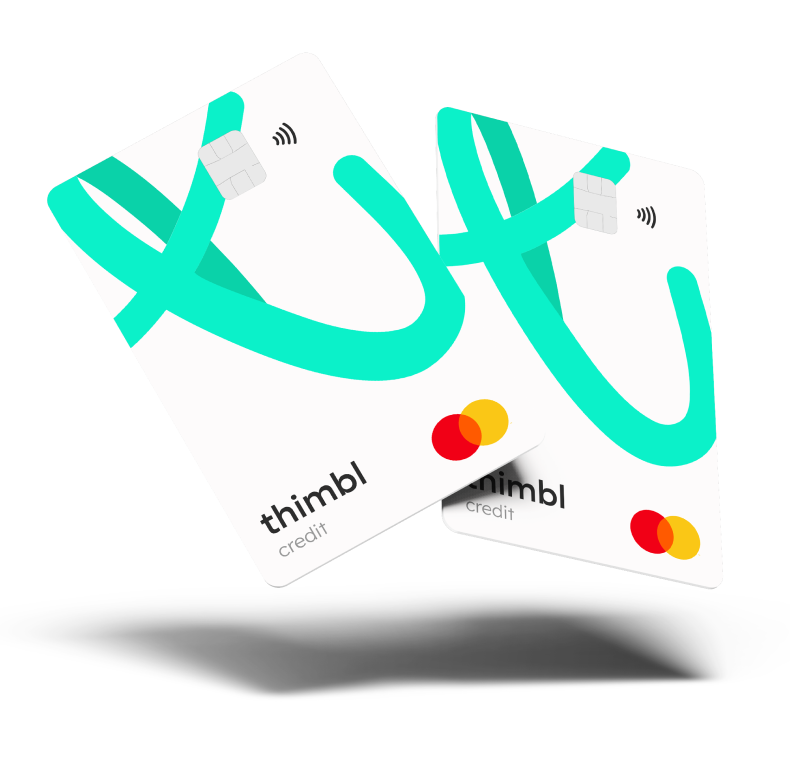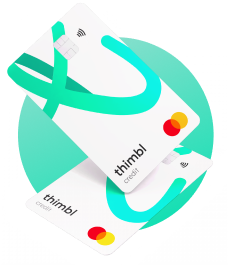Soft Credit Checks
Soft Credit Checks Explained
 Check if you're eligible with no impact to your credit score
Check if you're eligible with no impact to your credit score Personalised credit limit between £200 and £2,000
Personalised credit limit between £200 and £2,00048.9% APR Representative (variable)


thimbl is a trading style of Digitonomy Limited which is a credit broker not a lender. Any credit that is obtained as a result of an application will be provided by Lendable Limited. Subject to eligibility. You may be offered a credit card with different terms if you do not qualify.


 For all credit scores
For all credit scores
 Check eligibility with no credit score impact
Check eligibility with no credit score impact


What is a soft credit check? Also known as a soft search, a soft credit check is a type of lending check that allows credit brokers, as well as potential credit providers, to view your credit score and history.
Will a soft credit check affect my credit score?
No, a soft credit check will not have any impact on your credit score.
A soft search is usually carried out as part of an eligibility check for a credit product. If the soft search shows that you may be eligible for a credit product and you decide to make a full application, a creditworthiness assessment will be carried out by the lender or credit provider. A creditworthiness assessment could consist of either a hard credit check or Open Banking.
Please be aware that multiple hard searches in a short space of time could damage your credit score.
When will a soft credit check be carried out?
A soft search will be carried out when you check your eligibility for a credit product, such as a loan or credit card, and will give you an idea of your chance of approval. This could help you avoid making multiple, full applications with different lenders, which, in turn, could limit the number of hard searches on your credit file.
You should be aware that pre-approval does not automatically guarantee acceptance.
Checking your own credit report is also classed as a soft search.
Will a soft credit check show up on my credit report?
Yes, a soft credit check will show up on your credit report, but it will only be visible to you and the company who carried out the search. A soft search could remain on your credit file for up to 12 months.
What’s the difference between a soft credit check and a hard credit check?
A soft credit check allows a credit broker or provider to assess how responsible it would be to lend to you; it’s also a handy way for you to check your chance of approval before you apply. A soft credit check will not affect your credit score and will not be visible to other providers.
A hard search consists of an in-depth look at your credit history. Understanding how you’ve managed your borrowing in the past helps the credit provider decide whether or not to approve your application.
A hard search will leave a visible mark on your credit file and, as mentioned, multiple hard searches within a short period of time could cause your credit score to decline.
You can find out more about hard searches in our handy guide.
What information will show up on a soft credit check?
While a soft credit check is less in-depth than a hard search, it is still likely to reveal the following:
- Your personal information, such as your date of birth, address history, and whether you’re on the electoral roll.
- Any current credit commitments.
- An overview of your repayment habits, including any late or missed payments.
- Details of any Individual Voluntary Arrangement (IVAs), bankruptcies, and county court judgements (CCJs) that have been recorded over the past six years.
Could I get a soft search removed from my credit file?
You can only request a soft or hard search be removed from your credit report if this activity was fraudulent.
If you notice a credit check on your file that you do not recognise, you should contact the company who carried out the search as soon as possible.
Could I get approved for credit with just a soft credit check?
No, it’s not possible to get approved for credit with a soft search alone.
In the UK, the Financial Conduct Authority (FCA) requires all authorised and regulated lenders to carry out a creditworthiness assessment on anyone who applies for credit.
A creditworthiness assessment could be in the form of either a hard credit check or Open Banking.
Can you explain a little more about Open Banking?
If you’ve heard the term but are not quite sure what it means, we’re happy to provide some further information about Open Banking.
Open Banking is a safe and secure procedure that allows you to share your recent financial information with an authorised and regulated third party, such as a provider or lender. This is typically done through a one-off, read-only view of your online bank account. Open Banking puts you in control; only you can decide who views your account, and you can withdraw your consent at any time. Please note that third parties are not allowed to make changes or withdraw money from your account without your permission.
Check your eligibility for a thimbl Credit Card
You can check your eligibility for a thimbl Credit Builder Credit Card if you:
- Are over the age of 18;
- Are a UK resident with at least one year’s worth of UK address history;
- Have a monthly income of at least £800;
- Already have an active credit account, such as a loan or a mobile phone contract; and
- Do not already hold a Zable credit card.
thimbl uses soft search technology to check your eligibility with no impact to your credit score, but please bear in mind that if you choose to make a full application, a hard search will be carried out by the Lendable Ltd, the credit provider. As discussed, a hard search will affect your credit score.
- For all credit levels, from poor to excellent
- Checking won’t affect your credit rating
- 48.9% APR Representative (variable)

Checking your eligibility for a thimbl Credit Card: how does it work?
We’ve broken the thimbl journey down into five simple steps below. This should also give you an example of how a soft search could be used.
- Fill out our online form and tell us a little bit about yourself. This should take no longer than 60 seconds.
- We’ll run a soft search on your financial history, with no impact to your credit score.
- If our soft search has revealed that you’ve been pre-approved, you may choose to make a full application directly with our trusted provider, Lendable. Again, it’s important to remember that pre-approval does not guarantee acceptance.
- You’ll be sent a credit card agreement. You should read through this carefully before deciding whether to sign and return.
- Lendable will carry out a creditworthiness assessment, which will include a hard search. If Lendable are happy with the outcome of their checks, your new thimbl credit card will be posted out to you.
I’m worried about money; what can I do?
Whatever you’re going through, please know that you can get free, confidential money and debt management advice on sites such as StepChange, MoneyHelper, Citizens Advice, and National Debtline.
If you’re struggling to repay your credit card, you should contact your provider as soon as you can. There may be things they can suggest to help relieve some of the financial pressure during this difficult time.

Page last reviewed: 10th April 2025
Page reviewed by: Alex Kosuth-Phillips
You get all this with thimbl
Tap and go
Quick and easy contactless payments up to £100.
Secure banking app
Manage your credit card online, wherever and whenever you like, with the free mobile app.
A trusted service
Over 4,500 positive reviews from our customers.
48.9% APR Representative (variable)
Quick links








Worried about money?
If you're worried about the cost of living, need support with budgeting, or think you might need debt advice, StepChange could help. They offer free and impartial support and help hundreds of thousands of people every year to deal with their debts and take control of their finances.
To find out how StepChange could help you, take the free Money Health Check. It's quick and easy to complete, and will give you a personalised recommendation on what to do next.
Meet the team
Financial Content Writer
Head of Partnerships
Managing Director, thimbl
Marketing Manager, thimbl
Financial Content Writer
Frequently asked
questions
If you've got a question, you may just find the answer you're looking for here. If not, please visit our contact us page and get in touch.
What will my credit limit be?
You will always be made aware of any credit limit changes to any credit cards you have beforehand, and you do not have to accept a credit limit increase if you don't feel it's right for you.
What happens if I fail to make my repayments?
Missed payments will be reported to the credit bureaus, and your account will appear as in arrears. You will be charged a late fee, which is usually around £12. Your credit rating is also likely to decline as a result.
You should try to make your missed payments as soon as possible.
If you're struggling to keep on top of your repayments, you can find free, impartial advice from MoneyHelper, StepChange, Citizens Advice and National Debtline
If you want to know more about how credit cards work, you can read our blog.
Did you find this article helpful?
Let us know how we can be more helpful
Please leave your anonymous feedback to help us keep improving.
Need help or support?
Whether it's a question or you just need support, we're here to help.






